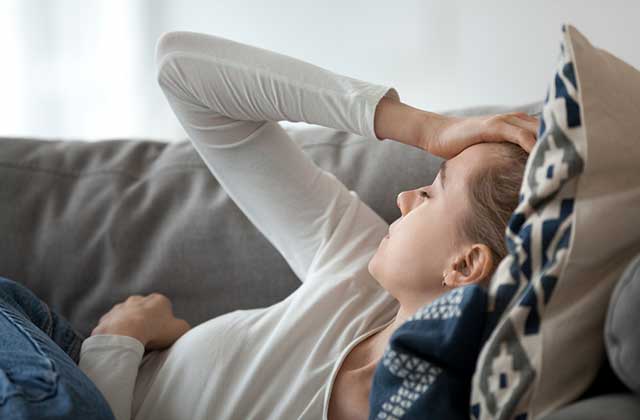Most women have experienced pain in their breasts at some point in their life. Just like any other part of the body, there are times when the breast of a woman feels sore.
If you are having sore breasts, it is usually not a cause for concern. But depending on the cause, breast pain can be alarming. It is better if you research the probable cause of that soreness. Some typical symptoms of breast pain include swelling, soreness, tightness, and shooting pain. Listed below are five most common reasons why women experience a pain in their breasts.
- Wrong Bra
Almost 80 percent of women have been wearing the wrong bra size. It can be difficult to find the right bra size without being properly fitted. Bra sizes can change as we grow older, or when our body size changes.
If you feel uncomfortable wearing a bra while outside, then you may be wearing the wrong size. Here are some signs that mean you have to change your bra:
- When your busts seem to be spilling out
- Your bra band seems too tight
- The bra cups are bulging or are baggy
- There is a gap between your breasts and the bra cup
- When your straps keep on falling down
- The straps leave a mark on your shoulder whenever you take the bra off
Bras are made to support the heavy and fatty tissues of the breasts. If you are wearing one that is not rightly fitted for you, it cannot provide the right support for your breasts. This causes your breasts to hurt and experience pain.
- Monthly period
One of the most common signs that your period is coming is when your breasts begin to feel tender and sore. Breast pain can be experienced three to five days before your menstrual period and will eventually stop hurting after it starts.
Estrogen and progesterone are hormones that cause this pain not only in the breasts but also in the other parts of the body. These hormones cause the breasts to increase in size and milk glands making them sore and swollen. To prevent experiencing the monthly pain, you can do the following:
- Apply ice or heat on the swollen or sore breasts
- Take a non steroidal pain reliever drug like ibuprofen and naproxen.
- Reduce your caffeine intake
- Reduce your salt intake
- Get enough rest and sleep to manage your stress level.
- Breastfeeding
Breast pain can also be caused by breastfeeding. When breastfeeding, you may also suffer cracked nipples. Cracked nipples occur when you are nursing your baby and he or she bites your nipples or when they become chafed and irritated. If you are breastfeeding for the first time, you may experience soreness and a tingling sensation everytime the milk starts to flow out of the breast.
If pain continues to persist while breastfeeding, consult your doctor right away.
- Breast infection
Breast infection, or otherwise called mastitis, is the infection of the tissues in the breast. This can happen to any woman at any age but mostly to women who are breastfeeding. Symptoms of breast infection include fever, warmth, burning, swelling, and redness of the breast.
To relieve the pain, you can try doing the following:
- If pain continues to persist even during sleep, take off your bra before going to bed.
- Just like when you have a common cold or fever, drink lots of water and fluid to prevent dehydration.
- If a breast infection occurs while you are breastfeeding, do not stop breastfeeding. Expressing milk out of your breast may reduce the pain.
- Sign of pregnancy
Pregnancy also affects the hormones of women causing different types of changes. If it is your first time to be pregnant, you may experience breast pain. They can feel tender and swollen during the first few weeks of pregnancy.
To prevent and relieve breast pain during pregnancy, here are some tips you can do to:
- Change your bra. Your breasts will grow when pregnant. Wearing the same bra, especially in the latter part of your pregnancy, can add to the pain.
- Apply a heating pad to your swollen breast to alleviate the pain.
- Avoid constantly touching your breast, especially in the early weeks of pregnancy.
- Wearing a maternity bra while sleeping can help you sleep more comfortably.
Most cases of breast pain are not that serious and can also be treated at home. But if you are experiencing breast pain with fever, chills, persistent swelling, or an unusual discharge, consult a doctor right away. If you don’t have an available doctor yet, you can go to an online doctor Vancouver for an immediate check-up. You can also book for an online consultation there for more concerns about breast pain and your overall health.


